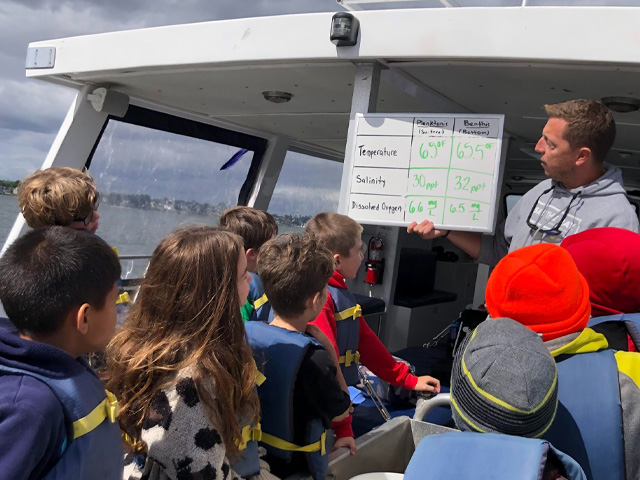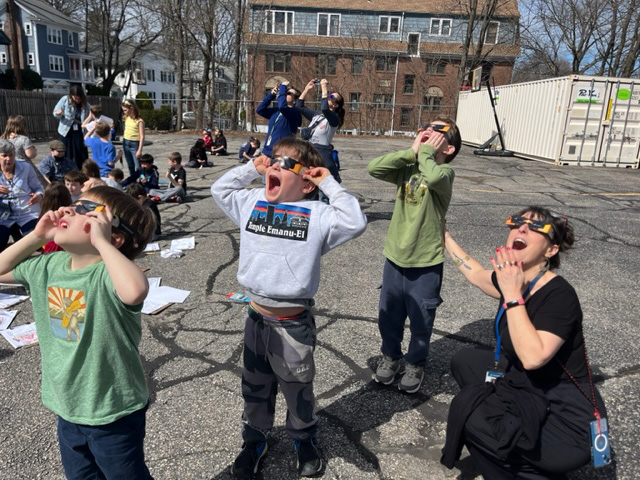Language Arts and Social Studies
The goal of our humanities curriculum is for all of our students to have an awareness of the world and their place in it, and for them to become lifelong learners who are passionate readers, sophisticated writers, and eloquent communicators.
Through the study of literature, history, cultures, geography, and ideas, our students gain an understanding of themselves and their own communities, as well as an appreciation for the richness and diversity of humanity. Children are encouraged to make connections between their experiences and the curriculum, and to practice the curiosity, skills and knowledge needed to meaningfully engage in our changing world.
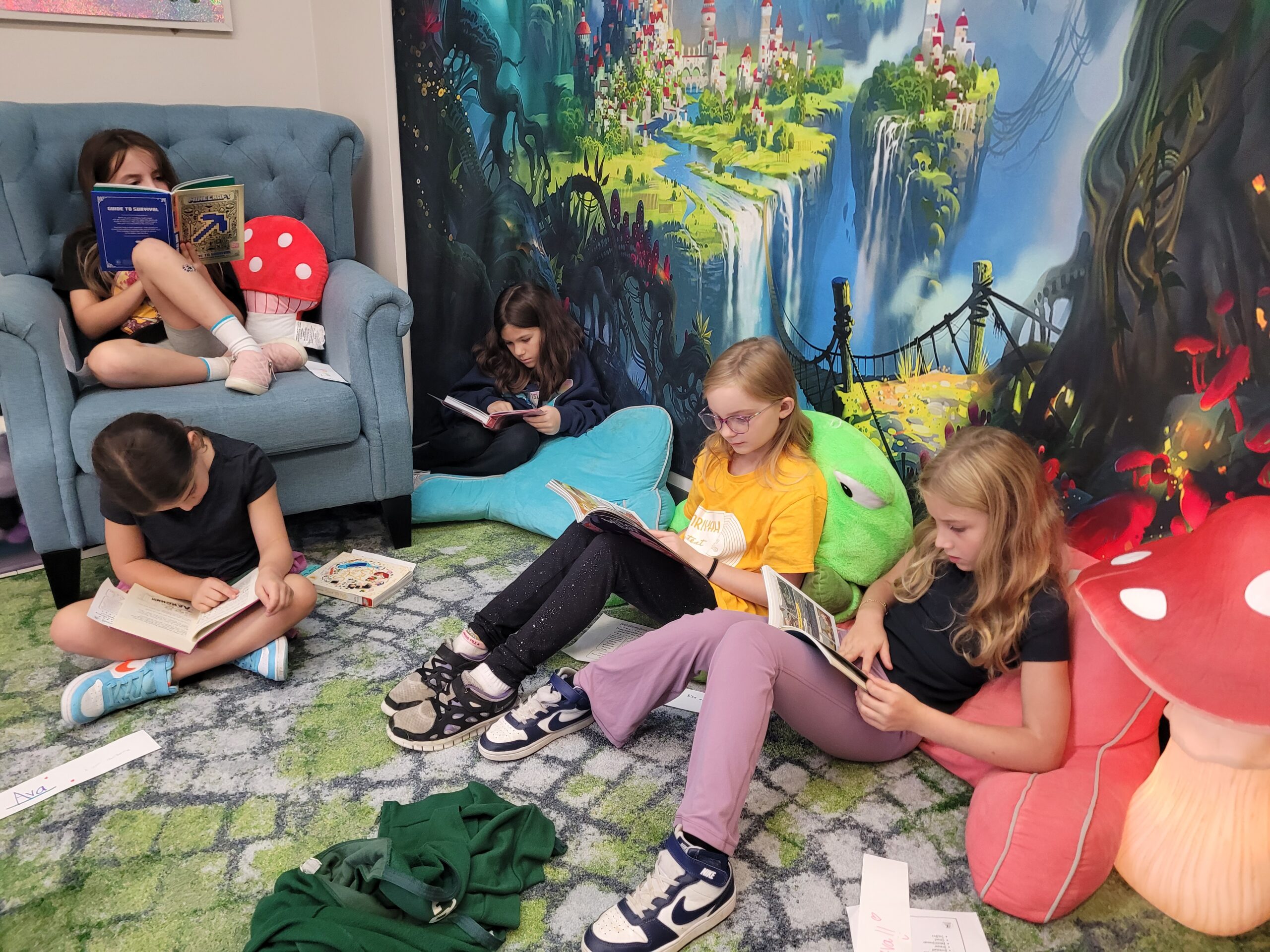
Topics are valued for their content and for the ways in which students can practice and develop higher-level skills throughout their time at JCDSRI, such as interpretation, analysis, and synthesis. Encouraging inquiry and critical thinking, our faculty guides students as they begin to recognize that history is viewed through multiple perspectives and that different people have varying beliefs and world-views.
Teachers model reading strategies using informational texts, historical documents, poetry, and fiction, through Guided Reading and read-alouds. Students build fluency and meaning as they hone their skills. Our students write across the curriculum using various techniques and types of writing, such as personal narratives, compare and contrast pieces, creative stories, poetry, persuasive writing, and multi-paragraph essays. Throughout the grades, students learn about the writing process: pre-writing, drafting, editing, and revising. Students are afforded many opportunities to share their work with their classmates and the larger community.

Mathematics
At the Jewish Community Day School of Rhode Island, we are committed to providing a rich, engaging, and inclusive mathematics education that nurtures both academic excellence and social-emotional growth. Our approach, rooted in the Singapore Math curriculum, emphasizes mastery, critical thinking, and deep conceptual understanding. This aligns with our school’s core values of intellectual curiosity, perseverance, and a growth mindset, ensuring that students develop both the skills and confidence to approach mathematical challenges with enthusiasm.
A hallmark of the Singapore Math methodology is the CPA (Concrete, Pictorial, Abstract) progression, which allows students to build a deep, intuitive understanding of mathematical concepts. Beginning with hands-on manipulatives and real-world applications, students progress to visual representations, such as bar models, before moving into abstract problem-solving. This intentional sequence ensures that students gain a strong conceptual foundation before applying formal algorithms.
Our mathematics program is designed to support the diverse needs of all learners, incorporating the principles of Universal Design for Learning (UDL). Through differentiated instruction, flexible learning strategies, and targeted scaffolding, we create an inclusive environment where every student can thrive. Advanced learners have opportunities for deeper exploration and acceleration, while those
who need additional support receive individualized guidance to build their skills and confidence.
Mathematics at JCDSRI is not only about numbers and equations—it is about fostering problem-solving, resilience, and collaboration. Through the integration of Social and Emotional Learning (SEL), we emphasize the importance of perseverance, teamwork, and self-reflection. Students learn that making mistakes is an essential part of learning, and they are encouraged to approach
challenges with curiosity and determination.
Our curriculum also places a strong emphasis on mental math, algebraic thinking, and real-world problem-solving, ensuring that students can apply their knowledge in varied and meaningful contexts. By recognizing multiple strategies for solving problems, students develop flexibility in their thinking and an appreciation for the creative nature of mathematics.
By integrating UDL and SEL into our Singapore Math curriculum, we nurture not only mathematical proficiency but also a sense of community, confidence, and a lifelong love of learning. Our goal is to inspire students to think deeply, embrace challenges, and develop the analytical skills needed to succeed in an ever-evolving world.
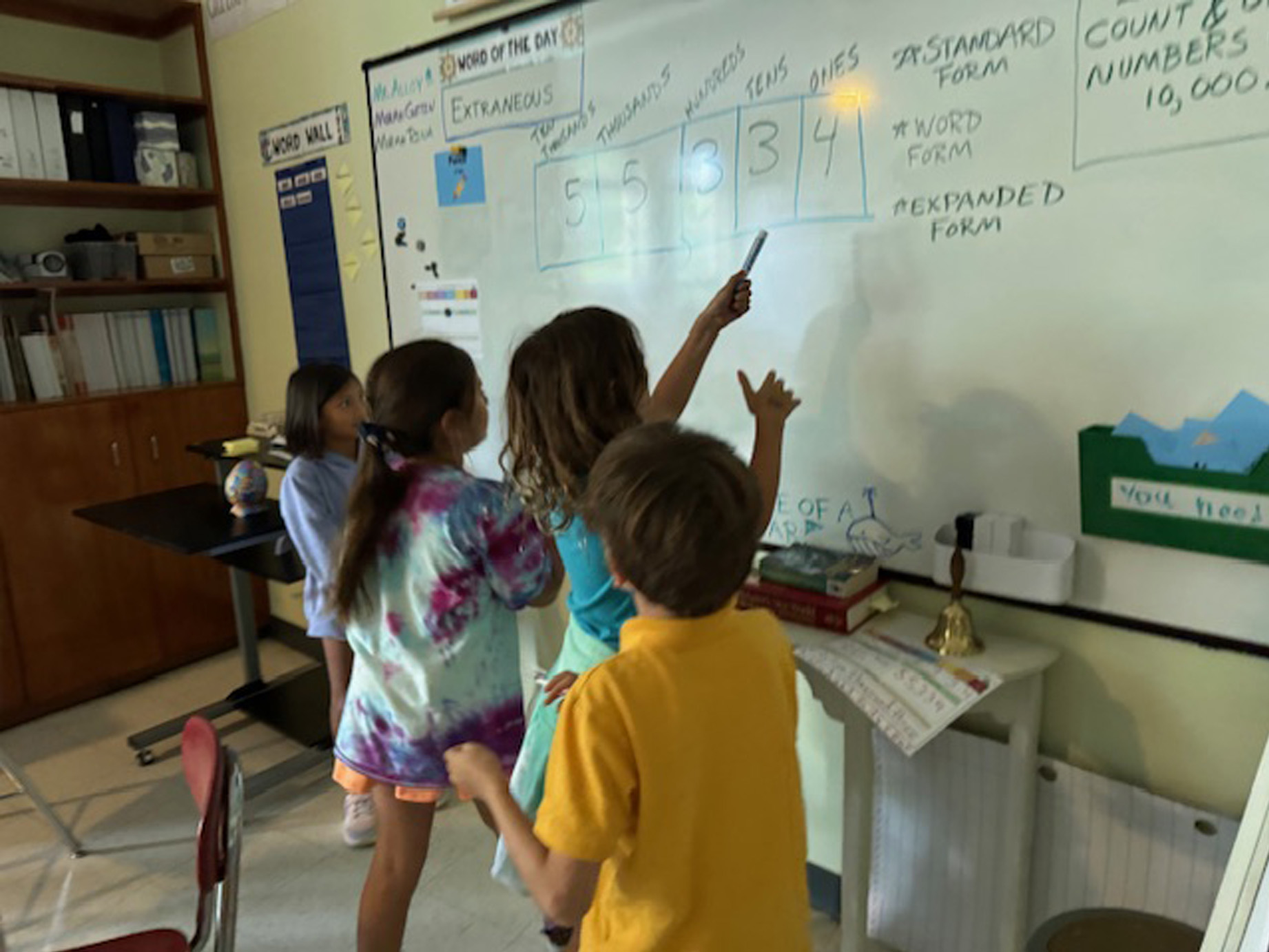
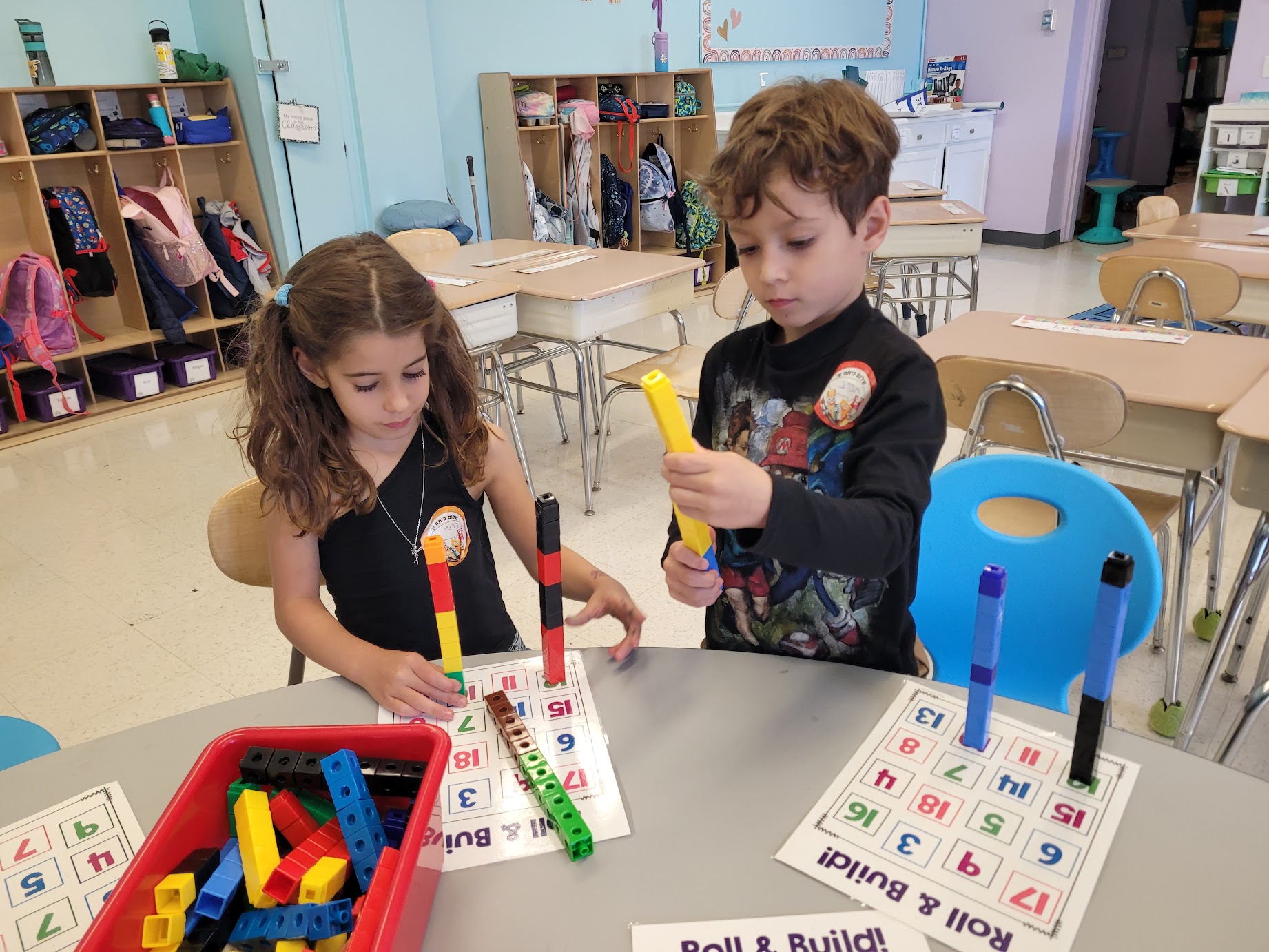
Science
Our curriculum offers students opportunities to hone their curiosity and to learn scientific concepts, skills, and strategies. Each child develops critical thinking and problem-solving skills through active student inquiry and by applying the scientific method. Students learn to critically observe with all their senses, to consider what they know, and to question the world around them in logical ways. They also practice posing hypotheses, doing experiments, generating explanations, and drawing conclusions, thus furthering both their personal understandings as well as those of the scientific world.
Teachers emphasize collaborative problem-solving, active investigation, and an understanding of current scientific issues. This includes an emphasis on environmental stewardship, associated with the Jewish concepts of shomrei adamah (“guardians of the earth”) and tikkun olam (our obligation to work toward “repairing the world”). Beginning in preschool, students engage in this powerful learning, extending their understanding through field trips and guest speakers. The curriculum culminates when our fifth graders participate in a four-day retreat that combines Jewish learning with experiential environmental activities.
Our hands-on science program begins in our youngest grades, introducing students to the fundamental ideas of life science, Earth science, physical science and environmental science. Science units by grade:
- Kindergarten: Animals; Trees; Weather
- First grade: Air and Weather; Pebbles, Sand and Silt
- Second grade: Balance and Motion; Plants and Insects
- Third grade: Magnetism and Electricity; Rocks and Landforms
- Fourth grade: Mixtures and Solutions; Environments
- Fifth grade: Living systems; Energy
